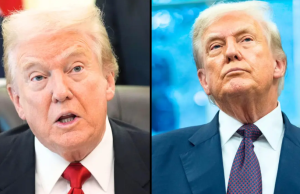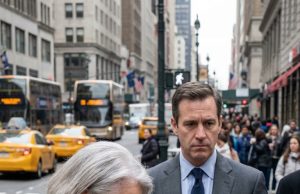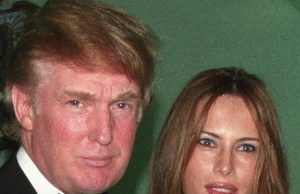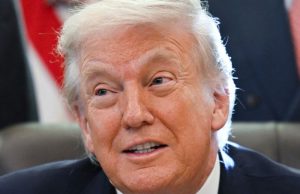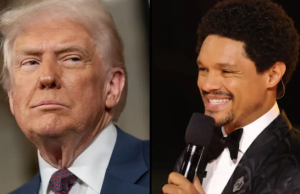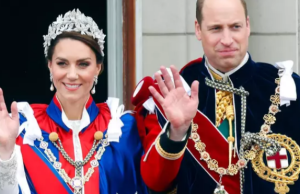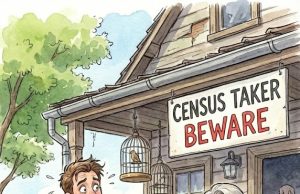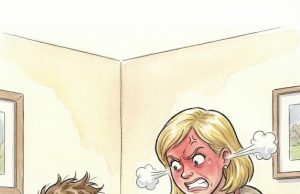
The courthouse reeked faintly of bleach and broken dreams. I stood there in a faded thrift-store dress, clutching my late mother’s purse like armor. Across the table, my ex-husband, Mark, signed the divorce papers with a smirk sharp enough to cut glass. Beside him, his new fiancée—young, flawless, shimmering in designer silk—leaned in and whispered something that made him laugh.
She turned to me with mock sweetness. “Didn’t feel like dressing up for your big day, Emma?”
Mark didn’t even glance up. “She’s never been one for appearances,” he said, tossing the pen aside. “Guess that’s why she’s history.”
The lawyer slid the last page toward me. My hand trembled as I signed away twelve years of marriage—for ten thousand dollars and a lifetime of what-ifs.
When they walked out, their laughter trailed behind them, cloying and unforgettable. I sat there alone, watching the ink dry beside my name, feeling like the world had just ended.
Then my phone rang.
Unknown number.
For a moment, I thought about ignoring it. But something—instinct, desperation, fate—made me swipe to answer.
“Ms. Emma Hayes?” The voice was calm, professional. “This is David Lin from Lin & McCallister Law. I apologize for calling out of the blue, but I have some news regarding your great-uncle, Charles Whitmore.”
My heart stuttered. Charles Whitmore? I hadn’t heard that name since childhood. He’d been the family’s phantom—rich, distant, and estranged long before my parents passed.
“I’m sorry to tell you he’s died,” David continued. “But he left you something—actually, everything. You’re his sole heir.”
I blinked. “I think there’s been a mistake.”
“No mistake,” he said gently. “Mr. Whitmore left you his entire estate, including Whitmore Industries.”
I froze. “You mean the Whitmore Industries—the energy company?”
“The same,” he replied. “You now control a multi-billion-dollar corporation. There is, however, one condition…”
His voice faded into static in my head. I turned toward the courthouse window and caught my reflection—wrinkled dress, tired eyes, the shadow of a woman everyone had written off.
Maybe my life wasn’t ending after all.
Maybe it was just beginning.
Two days later, I was standing fifty floors above downtown Chicago in a glass conference room that overlooked the lake. The skyline glittered like a promise. I felt like an imposter in someone else’s life.
David Lin, the lawyer who’d called me, sat across the table with a file thick enough to rewrite my future. “Before we proceed,” he said, “you need to understand your uncle’s stipulation.”
I braced myself.
“Mr. Whitmore’s will states you must serve as acting CEO for one year,” he explained. “You can’t sell or transfer shares until then. If you manage twelve months without scandal or bankruptcy, the company becomes fully yours.”
I let out a hollow laugh. “I’m an art teacher, not a CEO.”
“Your uncle knew that,” David said. “He believed your perspective—untainted by greed—was exactly what Whitmore Industries needed.”
“Or maybe he wanted to see if I’d fail,” I muttered.
He smiled faintly. “He also left you a note.”
He handed me a single page. My uncle’s handwriting was elegant and deliberate.
Emma,
I built an empire but lost my soul doing it. You still have yours.
Lead with integrity—something I never learned—and you’ll not only inherit my company, but restore our family’s name.
My eyes burned. I folded the letter carefully. “Then I’ll do it.”
That night, I sat in my tiny apartment surrounded by stacks of legal files, my cat purring beside me. Fear gnawed at me, but beneath it flickered something stronger.
Resolve.
The next morning, I walked into Whitmore Industries as its new CEO.
The boardroom fell silent. Suits shifted. Whispers rippled through the air.
“Good morning,” I said. “Let’s begin.”
That was the start of everything—and the day I met my first enemy.
Nathan Cole, the COO, was smooth, confident, and dangerous behind his smile. He extended his hand like he was humoring a child. “Welcome, Ms. Hayes. I hope you know what you’re getting into.”
“I’ll learn,” I said.
He smirked. “I’ll make sure you do.”
From then on, he questioned every move I made, undermined my authority, and leaked company details to the press. The media dubbed me The Accidental Heiress.
I worked harder.
Late nights turned into dawns. I studied balance sheets, law manuals, and energy contracts until my eyes blurred. I met every employee I could—from engineers to janitors—listening to the people no one else saw.
Slowly, they began to believe in me.
One night, after a fourteen-hour stretch, David appeared at my door with coffee. “You look like you’ve been through war,” he said lightly.
“I have,” I sighed.
“You’re winning,” he said. “Half the board already respects you.”
“Half isn’t enough.”
He smiled. “Every revolution starts with half.”
Something in his voice steadied me. It wasn’t flattery—it was faith. I hadn’t realized how much I’d missed that.
Then one night, everything shifted.
Maria, a quiet accountant, left a folder on my desk. “You need to see this,” she whispered.
Inside: proof Nathan had been funneling millions into offshore accounts.
Fraud. Massive fraud.
My pulse thundered. I could have buried it—to protect the stock price. But I thought of my uncle’s letter. Lead with integrity.
The next morning, I called a board meeting. Nathan arrived late, confident as ever.
“What’s this about?” he asked.
I slid the folder across the table. “Explain that.”
The room went still. His face drained of color as he flipped through the pages.
“Where did you—”
“Doesn’t matter,” I said. “Security will escort you out.”
Within hours, he was gone. By the next day, headlines exploded:
New CEO Exposes Massive Corporate Fraud.
Whitmore’s stock soared.
For the first time in months, I smiled for real.
At a charity gala weeks later, I saw Mark and his fiancée across the ballroom. They froze. I was in a sleek black gown, talking to senators and CEOs.
Mark approached awkwardly. “Emma… I didn’t realize—”
“You were right,” I said softly. “I belong in the past. But I built my own future.”
Then I walked away.
On the balcony later, David joined me, the city glittering below. “You handled yourself well tonight.”
“So did you,” I said. “I owe you for that phone call.”
“Maybe it wasn’t luck,” he said quietly. “Maybe your uncle wanted you to meet someone who wouldn’t let you quit.”
I smiled. “You’re dangerously sentimental.”
“Don’t tell my partners,” he said.
The silence that followed was full—of gratitude, of something new and unspoken.
Three weeks after Nathan’s ousting, the company was thriving on paper—but inside, the air was tense. David warned me, “You’ve made enemies. Quiet ones.”
He was right.
Whispers spread. Anonymous leaks hit tabloids. They called for my resignation.
I stayed late, studying files under the hum of city lights. Every night, I remembered Mark’s words: You belong in the past.
Not anymore.
Then David came in one night, holding a manila envelope. “You’re not going to like this.”
I opened it. My pulse spiked. “Nathan wasn’t alone,” he said. “Three board members were in on the fraud—and a fourth signature we can’t trace.”
My jaw tightened. “Then we find it.”
The following Monday, the board called an emergency meeting. The air crackled with hostility.
“Ms. Hayes,” said Mr. Carmichael, the oldest director. “You’ve overstepped—firing executives, launching investigations, and issuing press statements without approval.”
“I exposed corruption,” I said evenly. “You’re welcome.”
He glared. “Investors are losing confidence.”
“Maybe they should lose confidence in the people who betrayed them.”
Gasps filled the room. “Are you accusing—”
“Not yet,” I said. “But I have enough evidence to make the SEC very interested.”
The silence was nuclear.
I stood. “You can replace me if you want. But remember—power fades, truth doesn’t.”
When I walked out, the murmurs behind me sounded like fear.
David was waiting in the hall. “How’d it go?”
“I lit a match.”
“Good,” he said. “Let’s see who burns.”
By midweek, the story hit the press:
CEO Refuses to Step Down Amid Corruption Probe.
Employees began rallying behind me. A banner appeared in the lobby: Integrity Is Our Power.
For the first time, I understood my uncle’s faith in me.
That night, digging through old archives, I finally found the missing signature—Carmichael’s.
I looked up at David. “We have him.”
He nodded. “This could expose everything.”
“I’m done protecting liars.”
By morning, federal agents were in Whitmore Tower. Cameras crowded the steps as I faced reporters.
“Did you turn in your own executives, Ms. Hayes?”
“Yes,” I said. “Because truth is the only power worth keeping.”
The footage went viral.
The CEO Who Chose Integrity Over Power.
Weeks later, I presented the quarterly report to a reformed board. “Transparency works,” I said simply. The company had just posted record profits.
When the meeting ended, David lingered. “Your uncle told me once—if Emma ever comes back, remind her she earned it herself.”
My throat tightened. “He said that?”
“He did. And he was right.”
That night, at a gala honoring corporate integrity, I stood beneath chandeliers, giving my first keynote speech.
“A year ago, I left a courthouse with nothing. Today, I stand here with everything that matters—not money, but proof that integrity still wins.”
Applause thundered. And in the crowd, David watched—smiling, steady, proud.
Afterward, he found me by the door. “So,” he said, “what’s next, CEO Hayes?”
“Now,” I replied, “I finally get to live.”
He offered his hand. “Dinner?”
“As long as we don’t talk business.”
“No promises,” he said.
As we stepped into the Chicago rain, I realized something:
A year ago, I was invisible.
Now, I was free.
Epilogue — One Year Later
The Whitmore Foundation had expanded across three states, funding women rebuilding their lives after divorce. Whitmore Industries was thriving—ethical, respected, reborn.
My portrait hung beside my uncle’s in the lobby.
Every morning, I still arrived early, greeting the janitors and engineers. Every night, before leaving, I whispered two words to the city below.
Thank you.
Because everything I lost—love, comfort, certainty—was the price of something priceless.
Freedom.

